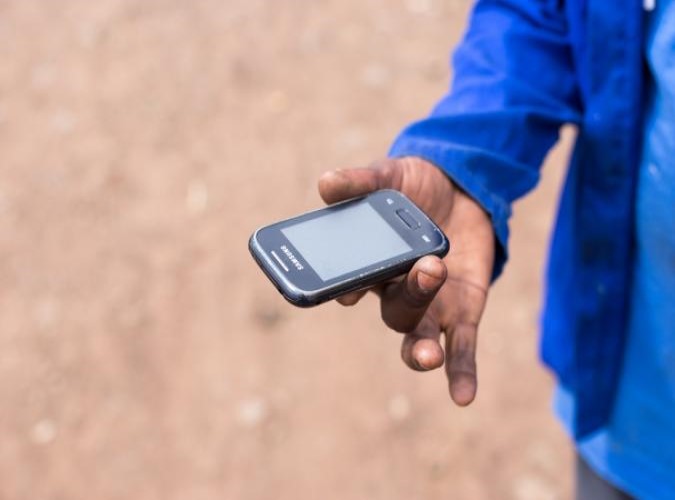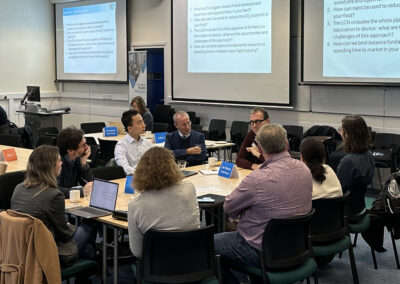A Nature Medicine review, led by researchers in the EPSRC funded i-sense project at the LCN, looks at how digital technologies have been mobilised for a global public health response to COVID-19 and the associated concerns in regards to privacy and efficacy in an ever changing digital world.
The review suggests that a collaborative, system-level approach is needed to build and evaluate an effective digital online pathway that links testing, contact tracing, and clinical follow up.
First author and i-sense researcher at UCL, Jobie Budd, suggested: “Technologies should be developed collaboratively with governments and healthcare providers, ensuring they meet public health needs and ethical standards.”
Researchers at University College London have been working with Public Health England to develop a suitable AI algorithm that monitors aggregated search queries related to COVID-19 from Google. It is hoped that this will allow researchers to gain a better understanding of the true rate of infection within the community.
i-sense Deputy Director, and Professor and Director of Research in the Department of Computer Science at UCL, Prof Ingemar Cox, added: “Online surveillance to support traditional surveillance methods has provided important insights into community transmission during this pandemic as testing has been limited and many cases of COVID-19 are mild or asymptomatic, meaning they may never report to hospitals or clinics.”
The use of data to inform outbreak response should also consider global disparities, primarily between developed and developing countries, in regards to access to computing and information resources such as the Internet. The review states that even though 67% of the global population subscribe to a mobile device, 51% of the world’s population are not mobile internet subscribers. As many of these interventions and surveillance methods rely on telecommunications infrastructure and connectivity, countless communities are likely to be left behind or missed from statistics.
Interventions should take into consideration these populations, as they may be those hardest hit during a global health crisis, and so it is important that messaging is accessible to those without access to mobile phones and/or the internet.
During this pandemic, many technologies have been adapted and developed on a scale and rate never seen before, including new apps and data dashboards using anonymised and aggregated data to help inform public health interventions. There will likely be benefits once complete evaluation has been done, however, concerns over civil liberties and privacy when using individual and population level data have been raised throughout the pandemic.
Chief Scientific Advisor, Department for International Trade, Dr Mike Short CBE, said: “Although times of emergency may call for different data access requirements, any data used for the pandemic response should not be misused beyond this purpose.”
According to Prof David Heymann of Infectious Disease Epidemiology at the London School of Hygiene & Tropical Medicine “We need to ensure new digital technologies go through rigorous evaluation to identify those technologies that prove to be effective so that they can add to our armamentarium for outbreak control, adhere to privacy and ethics frameworks, and are built into online pathways developed in collaboration with end-users.”
While digital technologies offer tools for supporting a pandemic response, they are not a magic bullet, the author’s state: “The emerging consensus is that they have an important role in a comprehensive response to outbreaks and pandemics, complementing conventional public-health measures”.
The future of public health is likely to become increasingly digital, but there is an urgent need for the alignment of international strategies to enable the regulation, evaluation and use of these technologies to strengthen preparedness and pandemic management.
The full article ‘Digital Technologies in the public health response to COVID-19’ is published in Nature Medicine.
Acknowledgements
This review was conducted in collaboration with experts across University College London, Chatham House, University of Surrey, Imperial College London, Newcastle University, Department for International Trade, University of Leeds, University of Copenhagen, and London School of Hygiene and Tropical Medicine.
Other contributors: Vasileios Lampos, Mengdie Zhuang, Michael Edelstein, Geraint Rees, Vince Emery, Molly M. Stevens, Neil Keegan, Michael J. Short, Deenan Pillay, Ed Manley, Ingemar J. Cox, David Heymann, Anne M. Johnson



